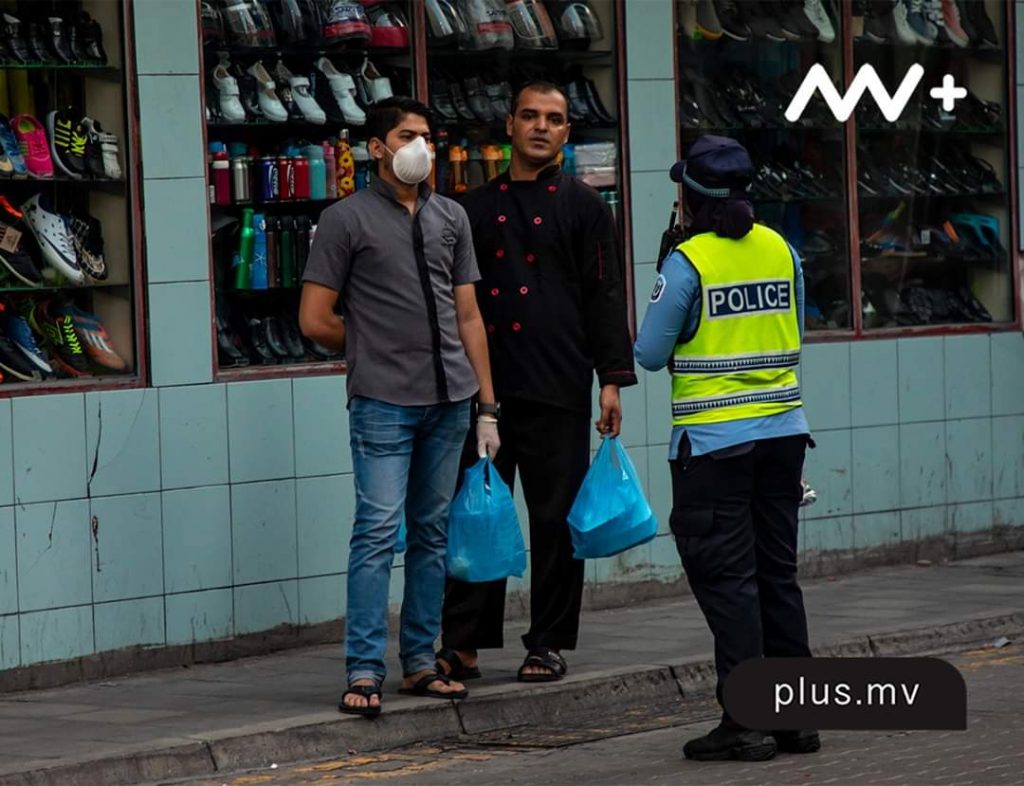According to World Health Organization, though COVID-19 spreads primarily from person to person through small droplets from the nose or mouth, the virus can also be contacted by touching a contaminated surface. The virus may live on some surfaces for several hours or even days.
Apart from the initial cluster of the first case of COVID-19 in capital city Male’, several new and unrelated clusters emerged within a short period of time within the community. Several expatriate workers who were working in the frontline to provide delivery services were also tested positive for COVID-19.
National Emergency Operations Center (NEOC) announced that the spread of COVID-19 in the Maldives was most imminent through the delivery system of essential good and supplies to households.

This caused panic amongst the public as delivery services have become critically important for people and more often than not require direct contact with customers.
Even if there were no direct contact with the delivery person, common places that are contaminated during the process include staircase railings, door knobs, bells and elevator buttons. As well as delivery bags and boxes.
Therefore, it’s essential to know the correct way to disinfect and clean the essential items delivered to your household.
According to a medical health professional, the most important thing to be aware of while handling deliveries is to avoid direct contact. Direct contact to delivery person and contact to your face after touching the deliveries should be avoided.
The ideal way is to spray disinfectant onto the delivered items and letting it sit for at least 24 hours before unpacking. Then wash all washable items with soap and water. However, if the items are needed more urgently, carefully take each item out as to not spread the virus particles that may remain on the surface and wash them thoroughly with soap and water.

To prevent the spread of germs, the authorities recommend not touching your face, nose, and eyes with unwashed hands—so pay extra attention when cleaning. Remember to wash your hands for at least 20 seconds after handling objects.
The fear of contamination from delivered items have also led many to do their shopping by themselves. While this eliminates the contact of another individual in the scenario, the virus could still exist in the items bought. Therefore, cleaning of the items should not be compromised.
Individuals taking the risk of going out to shop should wear personal protective items such as face masks or cloth facial coverings. Disposal of the mask and even the clothing items is important as virus can remain on surfaces.



















